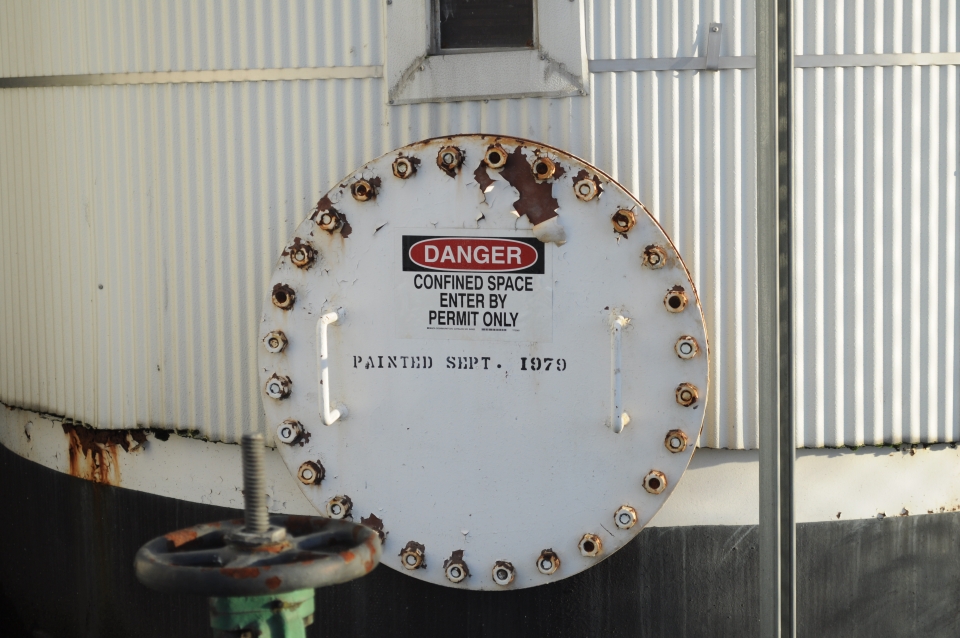The Nautical Institute warns once again of the dangers of entering an enclosed space after a close call on board a bulk carrier. Although there were no casualties, mistakes were made that could have easily resulted in a worse outcome.
The Nautical Institute gathers reports of maritime accidents and near-misses. It then publishes these so-called Mars Reports (anonymously) to prevent other accidents from happening. A summary of this incident:
A bulk carrier was underway. During his inspections, the chief mate noticed traces of bunker fuel oil in the forepeak ballast tank. Because that tank was adjacent to a bunker fuel tank, he suspected a leak from the bunker tank. He tasked two crew to enter and inspect the ballast tank with a view to confirming the situation. A third person was detailed as safety watchman at the tank manhole entrance.
After a time, another officer came by and asked the safety watchman how the inspection was going. He said everything was OK, but when the officer yelled down to validate the state of the two crew in the tank, he received no response. Without hesitating, the officer entered the tank and continued shouting to find the two men. He soon saw them both lying motionless at bottom of the tank.
The officer quickly climbed back up and out of the tank. He had no VHF radio, so attempted to raise the alarm by waving his hands and shouting towards the bridge to attract attention. Fortunately, the officer of the watch (OOW) saw him and sounded the alarm. Soon, all crew were mustered and a team entered the tank – without breathing apparatus. Both crew were rescued.
The victims were taken to the accommodation and given oxygen and CPR. Both victims were resuscitated and were deemed recovered.
Also read: What are the best ways to prevent enclosed space accidents on board ships?
Advice from The Nautical Institute
- Incredibly, this accident did not claim any lives! Statistics show that persons that attempt to rescue victims in an enclosed space often become victims themselves.
- The safety watchman must be vigilant and attentive to the persons within an enclosed space. Ideally, there should be near constant communication.
- Enclosed space procedures need to be thoroughly followed, including ventilating and testing the atmosphere before entry, having emergency rescue gear at the ready, and equipping at least one of the crew who enter with a gas detector.
Also read: Crew member dies in enclosed space after deadly H2S goes undetected
Mars Reports
This accident was covered in the Mars Reports, originally published as Mars 202301, that are part of Report Number 363. A selection of this Mars Report was also published in SWZ|Maritime’s February 2023 issue. The Nautical Institute compiles these reports to help prevent maritime accidents. That is why they are also published (in full) on SWZ|Maritime’s website.
More reports are needed to keep the scheme interesting and informative. All reports are read only by the Mars coordinator and are treated in the strictest confidence. To submit a report, please use the Mars report form.
Picture by Joe Mabel/Wikimedia Commons.
Also read: Never rush into a space that has a collapsed crew member inside








